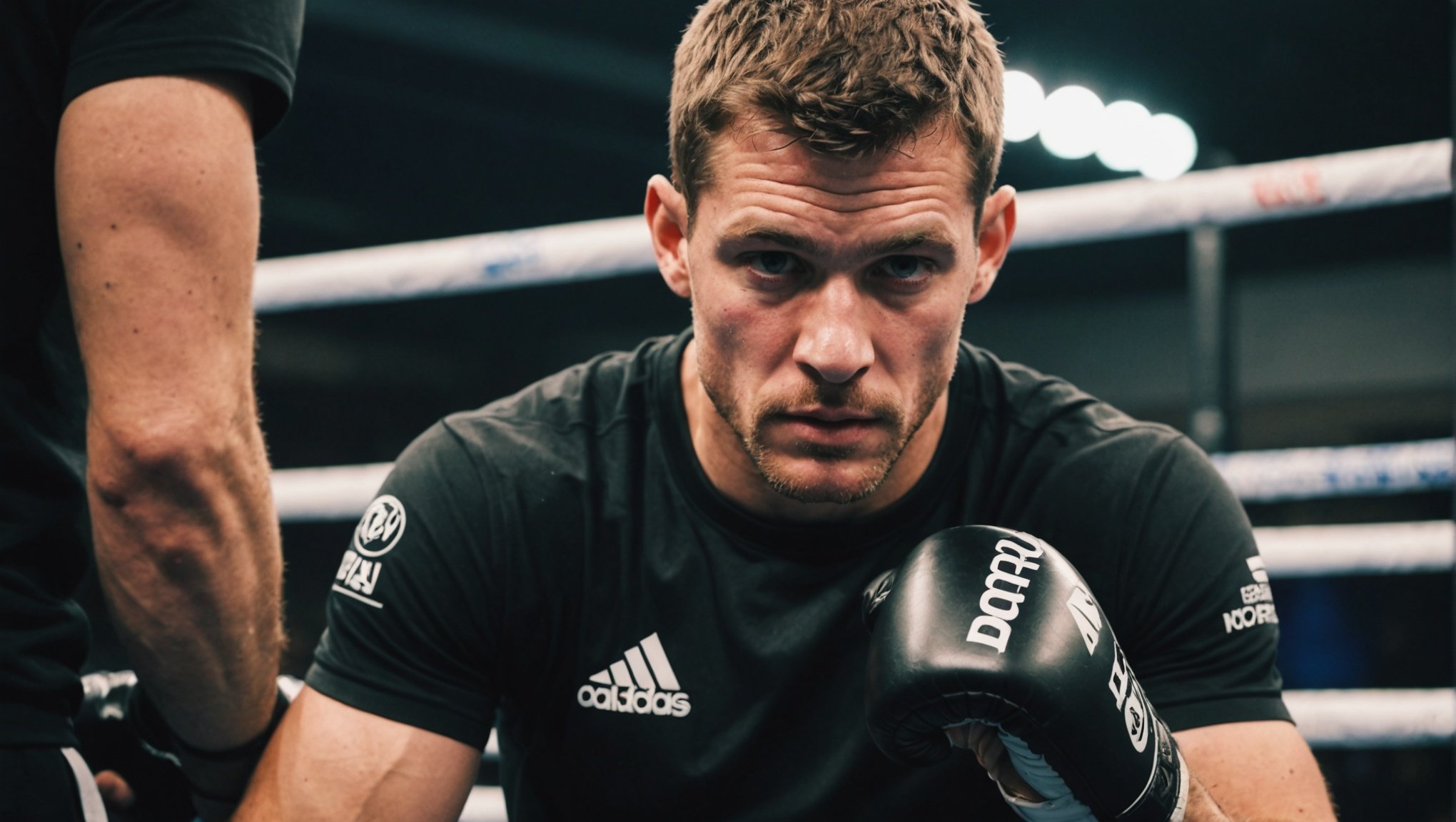Unlocking Mental Edge: The Impact of Sports Psychology on UK Fighters’ Training
In the high-stakes world of combat sports, the difference between victory and defeat often lies not just in physical prowess, but in mental toughness and strategic psychological preparation. Sports psychology has become an indispensable tool for UK fighters, helping them to enhance their performance, manage stress, and achieve peak athletic results. Here, we delve into the world of sports psychology and its profound impact on the training and success of UK fighters.
The Role of Sports Psychology in Combat Sports
Sports psychology is a specialized field that focuses on the mental and emotional aspects of athletic performance. For fighters, this involves a range of techniques and strategies designed to improve mental toughness, enhance focus, and optimize overall performance.
This might interest you : Essential Stretching Techniques for UK MMA Fighters: Injury Prevention Made Easy
Mental Training and Preparation
One of the key components of sports psychology is mental training. This includes techniques such as mental imagery, self-talk, and goal setting. Mental imagery, for instance, involves visualizing success in the ring or cage, which can boost confidence and prepare the mind for the physical demands of combat.
- **Mental Imagery**: Visualize yourself winning the fight, overcoming obstacles, and performing at your best.
- **Self-Talk**: Use positive affirmations to build confidence and manage stress.
- **Goal Setting**: Set clear, achievable goals for each training session and fight.
Dr. Cassidy Preston, founder of CEP Mindset, a leading mental performance coaching firm, emphasizes the importance of these strategies: “Mental training is not just about getting in the zone; it’s about creating a consistent and reliable mindset that delivers results under pressure.”
Also to discover : Master Your Footwork: The 5 Essential Drills Every UK Boxing Club Should Practice
The Science Behind Mental Edge
The science behind sports psychology is rooted in understanding how the mind influences physical performance. Here are some key concepts:
Neurological and Psychological Aspects
The brain plays a crucial role in athletic performance. Neurotransmitters like serotonin, as discussed in Jordan B. Peterson’s “12 Rules for Life,” can significantly impact mood and confidence. For fighters, maintaining healthy serotonin levels through proper nutrition, sleep, and mental practices can be crucial for performance.
- **Serotonin Levels**: Higher levels are associated with confidence and better performance.
- **Stress Management**: Techniques like deep breathing and meditation can help reduce stress and improve focus.
- **Sleep and Nutrition**: Adequate sleep and a balanced diet are essential for maintaining mental health and performance.
The Importance of Habits
Habits are a cornerstone of sports psychology. Developing positive habits can significantly improve an athlete’s performance over the long term.
- **Consistency**: Consistent training and mental practices lead to better performance.
- **Routine**: Establish a daily routine that includes mental training, physical training, and recovery.
- **Feedback**: Regularly seek feedback from coaches and mentors to adjust and improve habits.
Real-World Applications and Success Stories
Several UK fighters have attributed their success to the integration of sports psychology into their training regimens.
Case Study: Mental Performance Coaching
CEP Mindset has worked with thousands of athletes, including fighters, to improve their mental edge. Here’s a snapshot of their approach:
| Aspect | Description | Benefits |
|---|---|---|
| Mental Imagery | Visualizing success and overcoming challenges | Boosts confidence, enhances focus |
| Self-Talk | Using positive affirmations | Manages stress, improves mood |
| Goal Setting | Setting clear, achievable goals | Enhances motivation, improves performance |
| Stress Management | Techniques like deep breathing and meditation | Reduces stress, improves focus |
| Consistent Elite Performance | Developing repeatable and reliable strategies | Achieves consistent high performance |
Dr. Preston notes, “Our clients have seen significant improvements in their performance and overall well-being by incorporating these strategies into their daily routines.”
Combating Mental Health Challenges
Mental health is a critical aspect of sports psychology, especially in high-pressure sports like combat sports.
Injury Prevention and Recovery
Injuries are a common challenge for fighters, and mental health can play a significant role in recovery.
- **Positive Self-Talk**: Encourages a positive mindset during recovery.
- **Mental Imagery**: Visualizing a successful recovery can aid in the healing process.
- **Support System**: Having a strong support system can reduce stress and improve mental health.
Managing Stress and Anxiety
Stress and anxiety are common among fighters, especially before and during competitions.
- **Deep Breathing Exercises**: Helps to calm the mind and reduce stress.
- **Meditation**: Enhances focus and reduces anxiety.
- **Physical Activity**: Regular physical activity can help manage stress and improve mood.
Educational Resources and Community
For those interested in delving deeper into sports psychology, there are several educational resources and communities available.
Podcasts and Books
Podcasts like “The Without Limits Podcast” by Ollie Marchon and books such as Jordan B. Peterson’s “12 Rules for Life” offer valuable insights into the psychology behind peak performance.
- **The Without Limits Podcast**: Explores the psychology behind peak performance and mindset shifts.
- **12 Rules for Life**: Combines philosophy, psychology, and self-help to provide foundational strategies for personal growth and mental toughness.
Online Platforms and Coaches
Platforms like CEP Mindset and Champion’s Mind offer personalized coaching and training programs tailored to athletes’ specific needs.
- **CEP Mindset**: Provides mental performance coaching with a focus on consistent elite performance.
- **Champion's Mind**: Offers sports psychology and mental skills training made easy for athletes.
Practical Advice for Fighters
Here are some practical tips for fighters looking to improve their mental edge:
Develop a Pre-Fight Routine
A consistent pre-fight routine can help manage stress and improve focus.
- **Visualization**: Visualize the fight and your success.
- **Positive Affirmations**: Use positive self-talk to boost confidence.
- **Physical Warm-Up**: Engage in a physical warm-up to prepare your body and mind.
Focus on Long-Term Goals
While short-term goals are important, focusing on long-term goals can help maintain motivation and direction.
- **Set Clear Goals**: Define what you want to achieve in the long term.
- **Break Down Goals**: Break down long-term goals into smaller, achievable steps.
- **Seek Feedback**: Regularly seek feedback to adjust and improve your strategy.
Prioritize Mental Health
Mental health is as important as physical health for fighters.
- **Seek Support**: Have a strong support system in place.
- **Practice Stress Management**: Use techniques like deep breathing and meditation to manage stress.
- **Stay Positive**: Maintain a positive mindset through positive self-talk and visualization.
Sports psychology is no longer a peripheral aspect of athletic training; it is a central component that can significantly enhance a fighter’s performance, mental toughness, and overall well-being. By understanding the science behind mental edge, incorporating practical strategies, and leveraging educational resources, UK fighters can gain a competitive advantage in the ring or cage.
As Dr. Cassidy Preston succinctly puts it, “The mental game is just as important as the physical game. By mastering both, you can achieve consistent elite performance and reach new heights in your sport.”
Whether you are a seasoned fighter or just starting your journey, the principles of sports psychology can help you unlock your full potential and achieve peak performance. So, take the first step today – read, learn, and apply these strategies to transform your training and your life.






